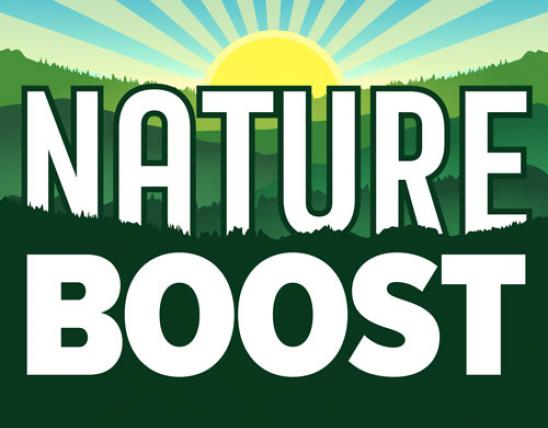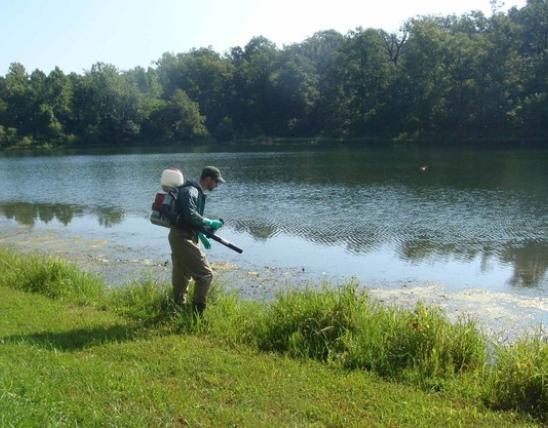It always sounded like a good thing... deer camp. Genie, a friend and colleague at our office had been telling us about it for years. Every November, she came back from the banks of the Big Piney River loaded up with gourmet deer sausage and enough good feelings to last all winter.
Steven and I had never been invited to deer camp. Why? We don't hunt. We canoe, backpack, cross country ski, bicycle and fish. It's not that we disapprove of hunting. Steven hunted quail with Brittanies back in the 60s, and when I was a girl, I helped Dad put up his deer stand every October; but that was before either of us farmed.
Still, every November, the mystery of deer camp intrigued me. So last year, I asked if Steven and I could go... not to hunt deer, but to hunt for answers. Why was a rendezvous in the Ozark woods during the dreariest month of the year so important to 20 friends that they would keep coming back for nearly two decades?
When Steven and I arrived at the campground late that November afternoon, low clouds draped the hills like a winding sheet, and a raw wind stole the last of the leaves from the trees. But as we got out of the car, I heard a cheerful sound. The Big Piney River, oblivious to the aging year, sang beneath its high banks.
Most of the crew were still out hunting but we were greeted by Robert Sooter, the one they call "the old man." Robert wasn't much over 50, but he'd lived in the Ozarks all his life, and his gray hair and beard seemed to imply he'd learned a lot in those five decades. He'd come in early to fire up the chuck wagon and start the evening meal. As he welcomed us into his outdoor kitchen, we were greeted with an ingenious layout that included two cook tops, two deep fryers, a gas refrigerator, gas lighting and rows of drawers and shelves for over 100 pieces of silverware, utensils, dishes and pots.
While we were talking, Genie came from her trailer where she'd been reading a book. Robert continued to fill us in, tallying the number of deer that had been taken so far and predicting the next day's weather.
Everybody was in by dark, shucking off layers, kicking off boots and complaining good naturedly about wobbly tree stands, disappearing white flags and gutsy squirrels. Two long tables were set up beneath the kitchen tarp, candles were lighted, and Robert laid the table with real china.
Someone else distributed silverware (with Martha Stewart precision) next to each place setting. Within an hour, we were sitting down to a dinner of rib roast, deep-fried catfish, slaw, hushpuppies, corn and biscuits, and we ate until we were too full to say or eat anything more.
The sun slipped behind the ridge taking the warmth of the November afternoon with it, and in the fading light, everyone helped clear tables and wash pots. After the dishes were done, we threw on an extra layer of fleece and took our seats around the campfire. A white disk of a moon dangled in the sycamores; the voice of an owl filtered through the bare bones of the trees.
Then someone said, "Hard to believe, isn't it? It will soon be 20 years since we started doing this." That was all it took. From then on the air crackled with stories: The year it was 22 below and the snow was so deep you couldn't walk... The year the rain never stopped, and the deer campers woke up in the river instead of next to it... The year they built the 40-foot high tree stand... The time someone slept in and a whole herd of deer invaded the camp.
As I sat and listened to these friends piece together the fabric of days spent together in this old river valley, I remembered Robert Fulghum's book, All I Really Need to Know, I Learned in Kindergarten.
What follows is a caption from Fulghum's credo. But it is not his alone. It's mine... It's yours, and most of all, it's theirs. It's the credo of the Big Piney Deer Campers.
What I Learned At Deer Camp:
- "Share everything:" If it's 20 degrees below and your friend comes to camp without his insulated boots, loan him yours. You don't need to hunt everyday.
- "Don't take things that aren't yours:" Don't steal another hunter's deer stand, and don't take more deer than you can use. Neither are in unlimited supply.
- "Clean up your own mess:" It's your mess, not someone else's, that makes the world a dump.
- "Warm cookies and cold milk are good for you:" So are snacks and schnapps, or anything else that can be passed around a campfire among good friends.
- "Watch out for each other:" Be careful with your rifle. Don't leave friends alone in the dark. It's a cold world, so keep the fire going.
- "Be aware of wonder:" Listen to the leaves crunching underfoot on a fall day. smell the trees. Walk in an old forest. Wake up excited every morning.
- "Live a balanced life:" Be tolerant of living things (that includes spiders and the misfits who hunt in your woods). Recognize your shortcomings, not your successes, because that's how you learn.
- "Goldfish and hamsters, and white mice all die:" The deer die too, whether hunters shoot them, or they starve or they just grow old... And so do we.
Deer camp didn't exactly turn out to be about hunting or even about gourmet cooking in the woods. It was about figuring out how to share dishes and boots and food and drink... about trying and failing and teaching. Deer camp was about learning how to live.
Before I left, I said to Robert Sooter, "Surely in 18 years there have been some bad times?"
"Not really," he said, "No matter what happens during the day, I go to bed thinking, tomorrow will be better... And it always is."
And More...
This Issue's Staff
Assistant Editor - Charlotte Overby
Managing Editor - Jim Auckley
Art Editor - Dickson Stauffer
Designer - Tracy Ritter
Artist - Dave Besenger
Artist - Mark Raithel
Photographer - Jim Rathert
Photographer - Cliff White
Staff Writer - Jim Low
Staff Writer - Joan McKee
Composition - Libby Bode Block
Circulation - Bertha Bainer






















